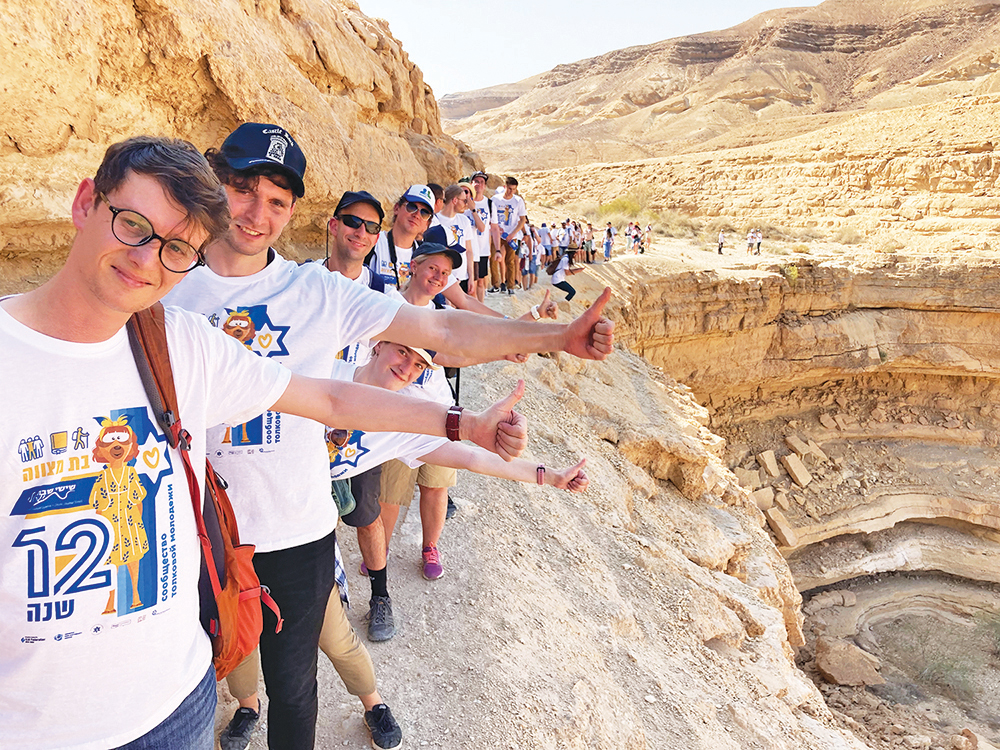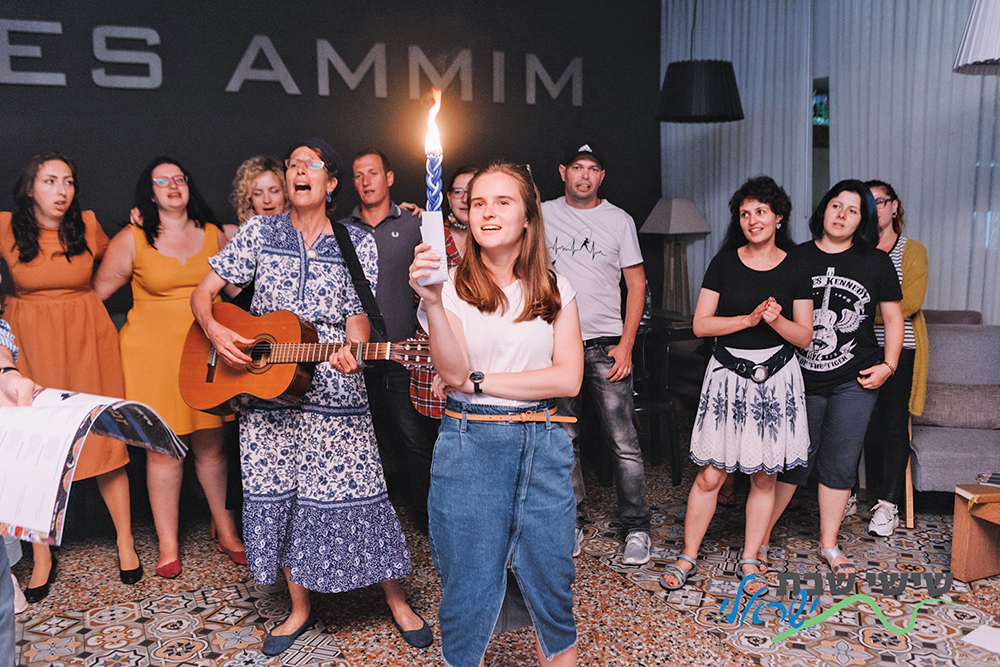
Linda Pardes Friedburg found her calling in life when she was a young activist in the Soviet Jewry movement and was moved by the plight of the Jewish people behind the Iron Curtain. She vividly recalls the excitement she shared with her peers when the Soviet regime collapsed and the gates of aliyah from this region of the world opened. After witnessing what she calls today “the hugest miracle,” she decided that she would dedicate her life to helping these new immigrants who had fought so hard for their freedom and were beginning a new chapter of their lives in Israel.
A native of Ocean, New Jersey, Friedburg fell in love with Russian culture as a teenager. She learned the language in high school, and in college she studied Soviet Jewish history. By the time the first wave of immigrants landed in Israel in 1990, she had already made aliyah and was able to personally welcome many of these newcomers into her home and hear their stories. She was keenly aware of the cultural differences between the new immigrants and native Israelis. Using her language skills and drawing on her passions, she took a job with JDC, where she served on the education team in the division of Russian Jewry and helped revitalize Jewish life in communities in the Former Soviet Union.
Meanwhile, she was hearing similar stories from many immigrants who were struggling to find the right kind of community and were considering emigrating from Israel. After a conversation with two bright and motivated young men who recently finished IDF service and were exploring job opportunities outside Israel, Friedburg felt compelled to action. She gathered a group of Russian speaking educators into a room to discuss practical solutions to help young Russian- speaking immigrants feel a sense of belonging in their new country. A pilot activity was planned and a short time later, 35 Russian speaking immigrants in their twenties gathered for a Shabbat retreat. Friedburg admits that she had to convince most of them to show up, but after a successful Shabbat together, word got around and when the next Shabbat retreat was advertised, it drew a waiting list.
Friedburg got to work raising seed money from The Pratt Foundation, AmiDa Institute and Genesis Philanthropy Group to expand the project, and in 2010 she launched the NGO Shishi Shabbat Yisraeli, aimed at strengthening the Jewish and Israeli identity of Russian-speaking Israelis between the ages of 18 to 35 and at developing their leadership abilities. Since its launch, some 18,000 individuals have attended programs under the auspices of one of the organization’s five branches across the country.
In addition to Shabbat retreats, the organization offers cultural, educational and recreational activities throughout the month to help young Russian-speaking Israelis connect with other peers and deepen their knowledge of Jewish literacy and Israeli culture. Every year on Yom Ha’atzmaut, Friedburg hosts a barbecue in her Neve Daniel home for over 100 program participants. And just recently, the organization opened a new space in Jerusalem to allow for expanded programming in the capital city.
One participant named Lena Mazurevich, who immigrated from Kiev to Jerusalem, shared that the program has made her feel “150% part of the Jewish people” and has helped her connect with other young immigrants like herself. “It introduced me to Israel, taught me Jewish traditions that I knew nothing about and brought me many new friends whom I can spend time and celebrate holidays with,” she shared via a video message.

When war broke out in Ukraine last year and Israel received an influx of new immigrants, many found their way to Shishi Shabbat Yisraeli. Friedburg and her team assigned each new arrival with a volunteer and began offering weekly educational webinars on topics ranging from mental health support to studies on an upcoming Jewish holiday to renting an apartment. In recent weeks, following the October 7th massacres, programming has pivoted to support the war efforts. Busloads of program participants have arrived at army bases where they are sorting equipment for soldiers. The organization also launched a campaign to support olim evacuees that may not have family close by for support.
Friedburg is proud that many of the young immigrants who have attended Shishi Shabbat Yisraeli events have taken on leadership positions in the Israeli educational system, legal and medical spheres as well as other sectors. “Israel needs these types of wonderful, loving, talented people,” Friedburg said. “They have a unique role to play in Israel’s development and future.”
“How do you know what your unique mission is in life?” Friedburg asked. “It is something you want to do, even if you don’t have the tools,” she answered, quoting the late Rabbi Lord Jonathan Sacks, z”l. Friedburg jokes that when she launched her project, she did not have the experience of running a nonprofit organization or any fundraising knowledge. But thirteen years later, thanks to a great deal of passion and generous partners along the way, Friedburg has helped thousands of Russian-speaking Israelis find a spiritual home in Israel and plant firm roots for future generations.
For more information visit www.en.shishi.co.il
Alisa Bodner is a Fair Lawn native who immigrated to Israel a decade ago. She is a nonprofit management professional who enjoys writing in her free time.









